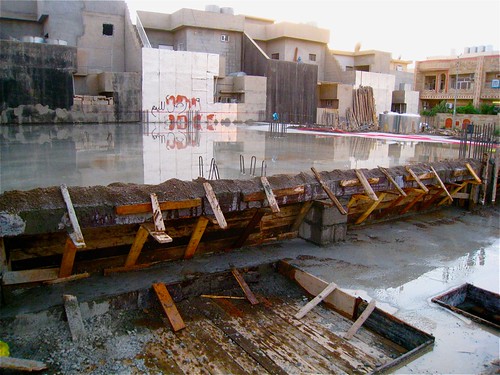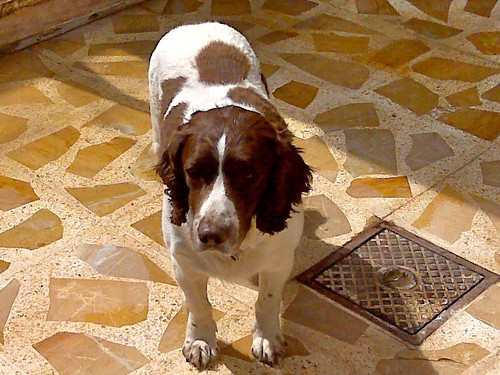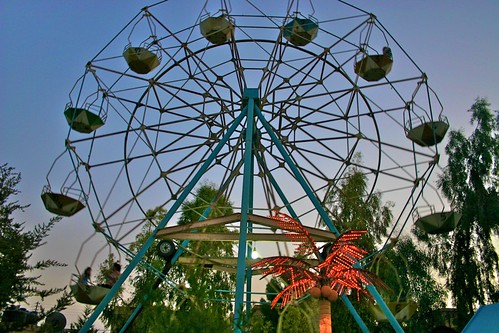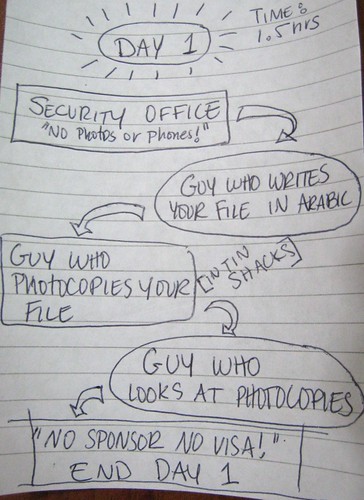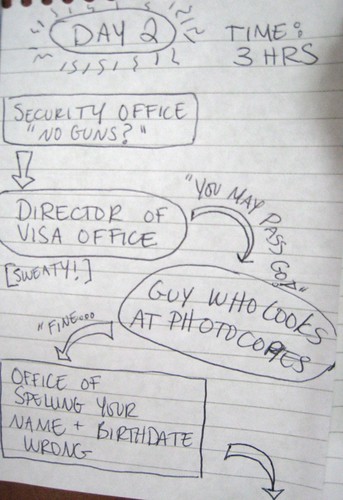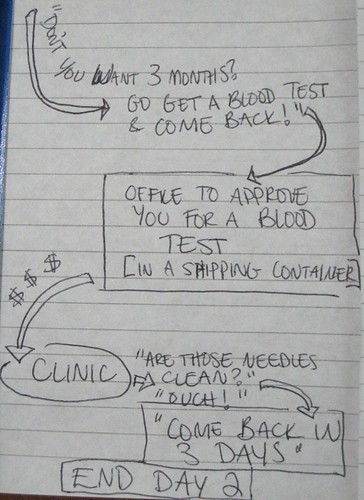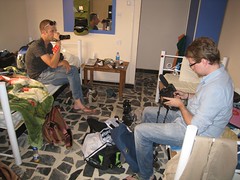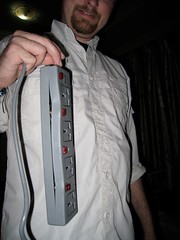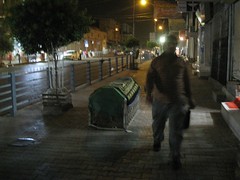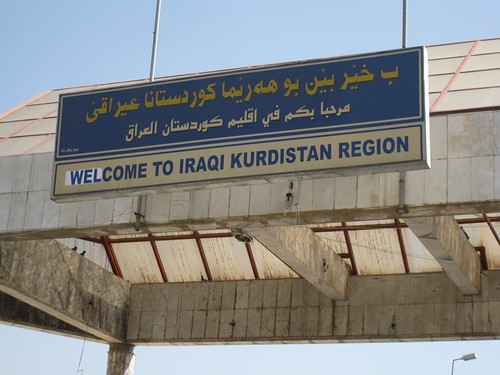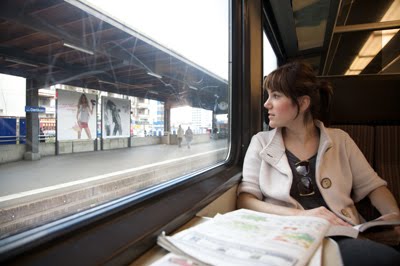Since my arrival in northern Iraq, I have been continually surprised by the amount of support
The Tiziano Project has received from locals. I have heard again and again, from people on the street to editors and heads of news organizations, that the press around here needs some help.
There are virtually no independent news organizations in northern Iraq. This may not surprise you. But what might is that freedom of the press is not Kurdistan's biggest media problem.
There is an audience for news here in a way we can't imagine in the U.S. Historically, the people of this region have been great readers. I was speaking with someone just today that told me that there's an old saying that goes: "The Egyptians write, the Lebanese print, and the Iraqis read."
This man remembered reading books as a child that simplified complex issues, like the theory of relativity. And everyone in his family read voraciously. But as he grew older, things began to change. Foreign books were banned or hard to come by. Papers were forced to publish positive articles about the regime. These lack of freedoms are the things we as Americans often imagine as Iraq's state of affairs under Saddam Hussein.
Then the U.S. invaded and handed power to Iraqi Kurdistan to become an autonomous region. (Kurdistan is part of Iraq but is run by a separate government than the rest of Iraq. Okay, poli sci lesson over).
It's at this point where, ironically, a whole new slew of problems started for the media in Kurdistan.
Anyone remember back to America's own journalism history? How cheap printing and distribution allowed for hundreds of opinionated people to start their own presses and share their views with the rest of the country? And then a few politically motivated heavy hitters began backing the newspapers they liked or made their own to make the news what they wanted people to hear?
That's what's happening in Kurdistan right now.
As soon as the limits to what could be printed here were lifted, everyone had something to say. Then, just like in the States, these papers started to solidify or dissolve according to how much money they had behind them. And in this region, that money comes from political parties. Right now, I'm told that there are dozens of newspapers printed daily, and that there are at least four major newspapers that are openly backed by political parties. (This applies to broadcast media too, but I'll stick to discussing newspapers here.)
This isn't necessarily a bad thing. The affiliations for each paper are clear - people know what slant they'll get depending on which paper they pick up. And these political parties can also protect journalists from criticism - or worse - if they publish articles on societal problems or expose corruption within the government.
The real problem with many of the papers here, people tell me, is that there are some real ethics issues within the papers themselves. There are a lot of published criticisms and accusations that are unsourced, poorly researched, and written to pick a fight rather than to promote public discussion. This, no doubt, has to do somewhat with the papers' political affiliations, but many attribute it to simply bad journalism. There's a thirst here for meaningful political and societal criticism. Of reporting that goes past finger pointing and parses crucial issues in a way that will help the majority find a solution.
In my conversations with people here, I haven't quite drilled down to why this is so hard for journalists here. One would imagine they would want to avoid tabloid-style accusations and commentary lest they end up like a
recent Erbil journalist who was assassinated after he published a satire piece about President Barzani's daughter. While the journalist's death was publicly condemned, many have said that the journalist wasn't operating ethically to begin with - publishing highly critical but poorly sourced articles for months under a nom de plume, concluding with an immensely insulting (in this culture) article that in American terms translated to "Your Mama" to Barzani. He, along with everyone else around here, knew insults like that weren't to be taken lightly.
But people have another major problem with Kurdistan journalists, and it's the first thing they'll tell you about. Kurdish journalists don't know how to write. I can't read Kurdish but I'm told that many articles are so badly written that they don't make any grammatical sense. An editor recently told me that he hires twice as many copyeditors as journalists at his paper to catch all the errors his writers make.
But it's not their fault.
Why? Remember that Kurds have been suppressed in this region for decades, and in some neighboring countries, the use of Kurdish is still illegal. Many adults in this region grew up speaking Kurdish but learning academically in Arabic. When Kurdistan became an autonomous region, they happily turned from the Arabic of their "suppressors" and busted out with Kurdish signs, Kurdish taught in schools, and Kurdish literature, songs and poetry that is celebrated. Kurdish is celebrated, but until now, not widely written by Kurdish people.
To make things even more complicated, Kurdish itself is a sticky business. Kurds have been geographically separated in recent years into four separate nations, and the language has grown apart into dialects that are almost totally different languages in themselves. In some places, Kurdish is written in Arabic-style lettering. In others, Latin letters are used. Even in parts of Iraq, Kurds can't understand one another. This is common for many languages with regional differences - such as German, where Swiss German, Austrian German and Bavarian German are radically different from one another. The Germans solved this by instituting a universal "High German", which pretty much all German speakers can understand.
Unfortunately, there is no "High Kurdish". Though all schools in Kurdistan now teach in Kurdish, textbooks must be printed in separate dialects according to region. And poets and literati who insist on writing in "pure" Kurdish, which uses latin letters that represent the roots of Kurdish from the Ottoman empire (before Arabs introduced Arabic lettering), are not understood by the vast majority of Arabic-schooled Kurdish speakers.
So, Kurdish writers are left to wing it, to make up the grammar and spelling and proper usage as they go along. I can only imagine this could make for some really compelling literature -after all, it was the flexibility of the English language that gave Shakespeare such leeway for brilliance in his day- but when daily news depends on clarity and brevity, overcoming a basic problem like an unstandardized language is no small feat.
As a news editor, one of my main jobs is to make sure that writers comply with standards - standard dictionary definitions, standard grammar, standard AP style. I double check sources, question iffy statements and make sure that everything that comes from the publications I edit are watertight so that people can get a straight story they can trust. As I learn more about the challenges of writing here, I can only admire the tenacity of the journalists and editors who are trying to apply Western standards of journalism in northern Iraq. Keeping the
"six honest men" on the straight and narrow is hard enough without inventing a language as you go.
